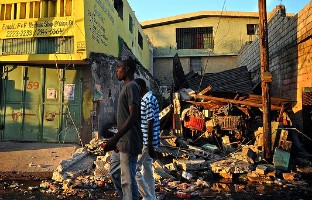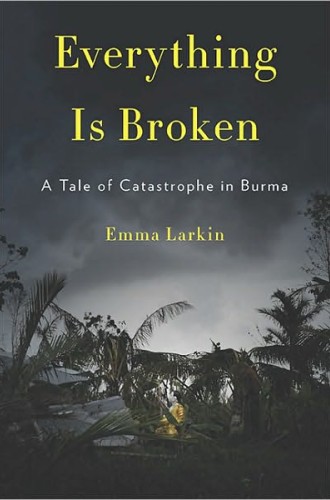After disaster

In all my travels to so-called hot spots—Pakistan, Afghanistan, Darfur, Chad—the only time I feared for my physical safety came in Haiti following the January 2010 earthquake. I had joined a group of humanitarian workers to report on the distribution of supplies in a village about an hour's drive outside Port-au-Prince. The Haitian aid workers had done a good job of setting up the distribution site, but within minutes of arriving we saw that their well-laid plans were in jeopardy.
This was the first assistance that people in the area were receiving—about two weeks after the earthquake—and tempers were short. Local police who had been called in to keep order refused to do so until they had received supplies themselves. They were particularly keen on getting tents. When the aid workers refused their demand, the police stood by and did nothing as a frustrated crowd rushed toward the distribution site. People chaotically grabbed whatever they could, and a policewoman responded by firing several shots in the air.
For me, it was another example of how humanitarian assistance is an imperfect business. While it does a necessary good, it is also limited in scope—just the first step toward recovery—and it is offered in circumstances of immense difficulty, pressure and confusion.






